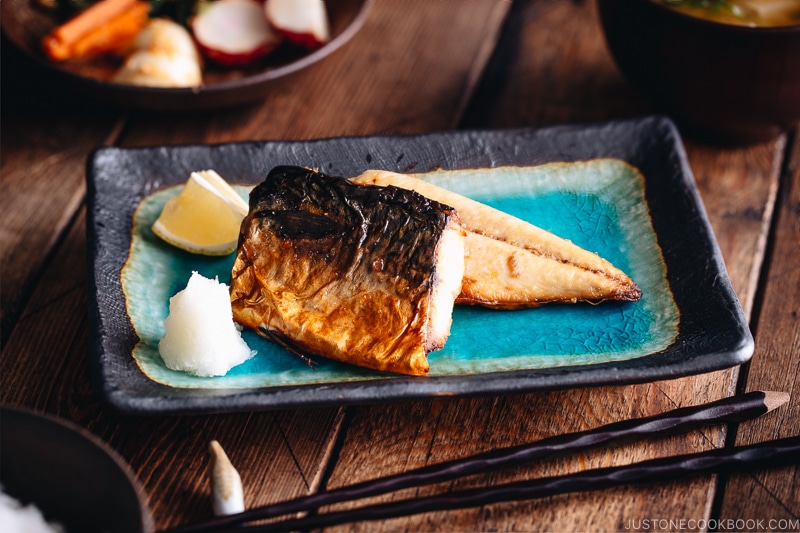
Baked in the oven, this Grilled Mackerel or Saba Shioyaki is the simplest fish recipe you can make on your busy weeknight. It’s a little rustic, but a thing of beauty, with its golden crispy skin and delicious flavor. Serve it with steamed rice, miso soup, and a salad, you’ll have a lovely Japanese meal for dinner.
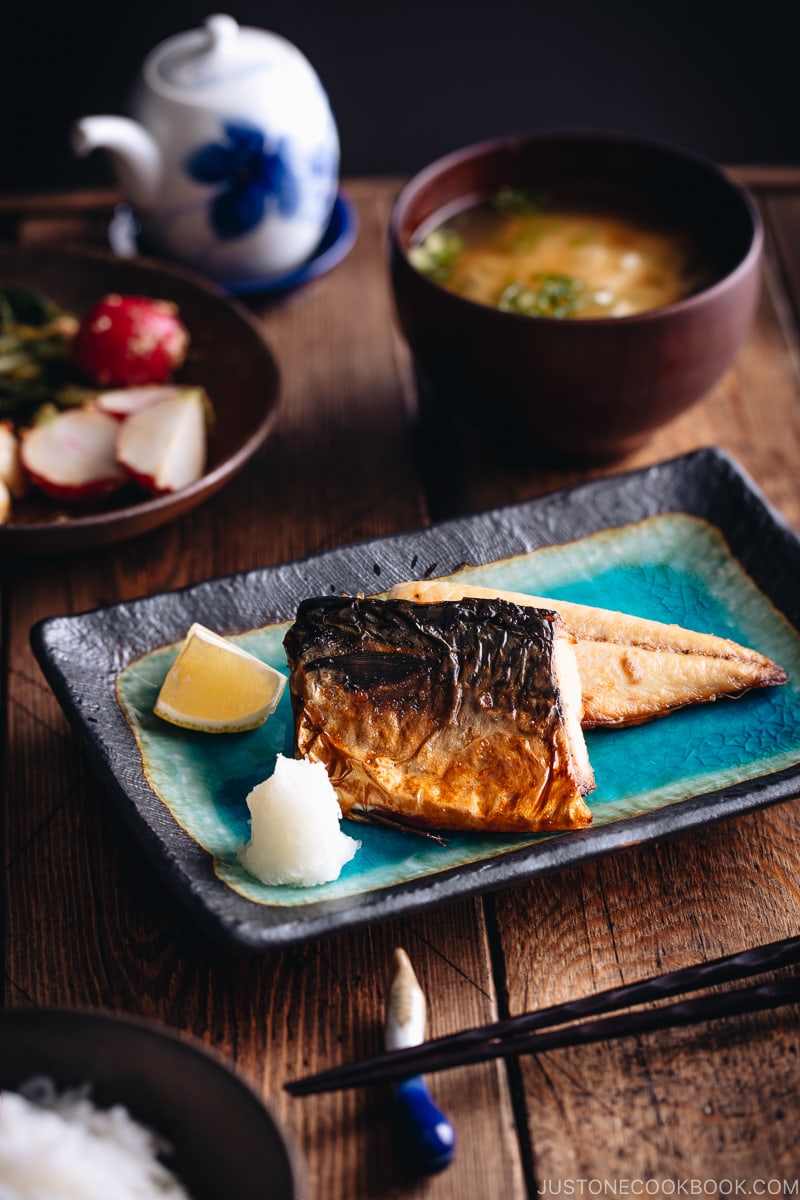
Grilled Mackerel or Saba Shioyaki (鯖の塩焼き) is one of the popular seafood dishes served as an entree or part of a bento combination in Japanese restaurants in the U.S. You may already know this, but what you may not know is how fast and easy it is to make this grilled fish at home. This is the reason I love making this for my family dinner — it feels special, but is so very simple.
What does Saba Shioyaki mean?
Saba (鯖) is mackerel and Shioyaki (塩焼き) means salt (shio) and grilling (yaki). As you can guess, the only seasoning we need for this dish is salt, which brings out the rich flavors of mackerel. Anyone can just season with salt and cook, and call it a recipe; however, I’ll show you a few tips you can use to make the dish extra delicious!
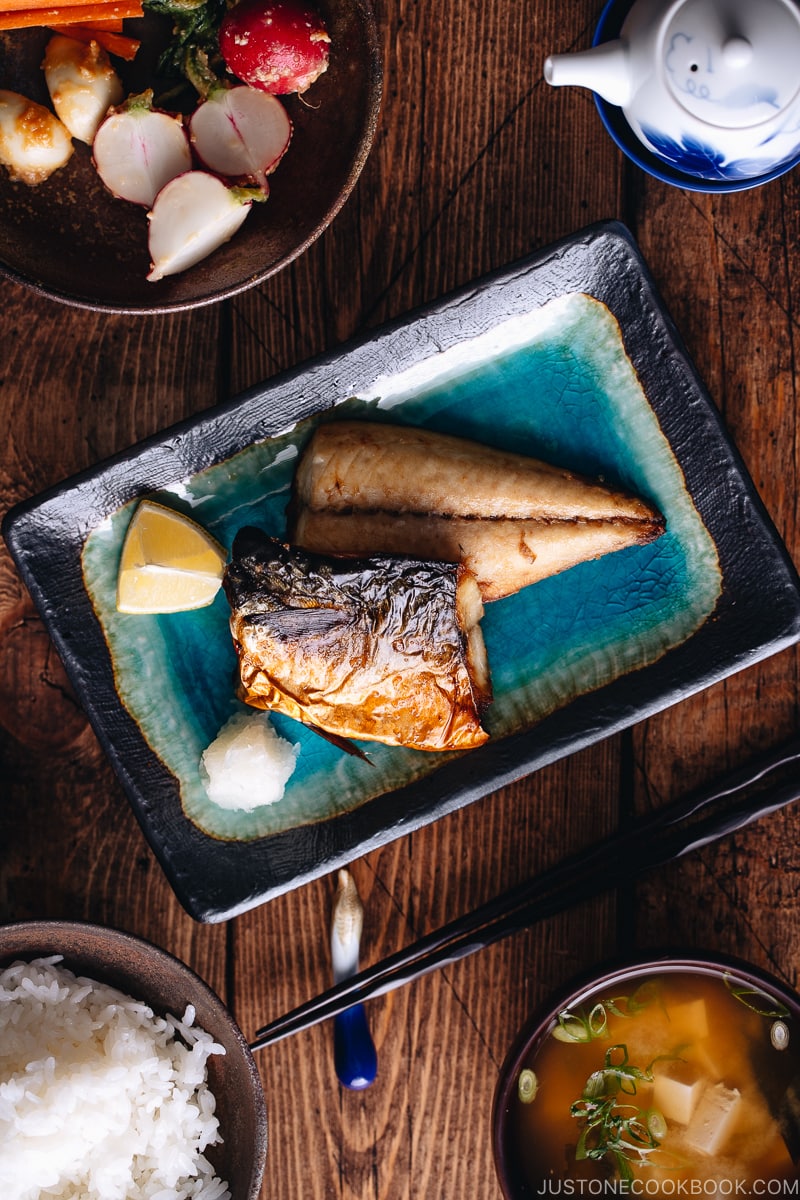
2 Tips to Make Delicious Grilled Mackerel (Saba Shioyaki)
1. The Use of Sake
If you’re familiar with Japanese cooking, you’d notice that the majority of recipes call for sake (Japanese rice wine). There are many benefits of using sake in Japanese cuisine, and this recipe is no exception.
We use sake in this grilled mackerel to:
- Add umami
- Tenderize the fish
- Make the texture more “plump” (“Fukkura” ふっくら in Japanese)
- Remove any fishy odor
If you are not sure what type of sake you can buy, read this post on my blog.
2. The Use of Salt
Salt is used not only to season the fish, but it also extracts water from the fish and eliminates any unpleasant smell. Once you sprinkle the mackerel with salt, let it rest for 20 minutes. Do not let it sit anytime shorter or longer. If it is rested too short a time, the fish does not soak up enough salty flavor and the smell may still linger. On the other hand, if you rest it for too long, the smell may be gone but the flesh will get too tight and lose its texture.
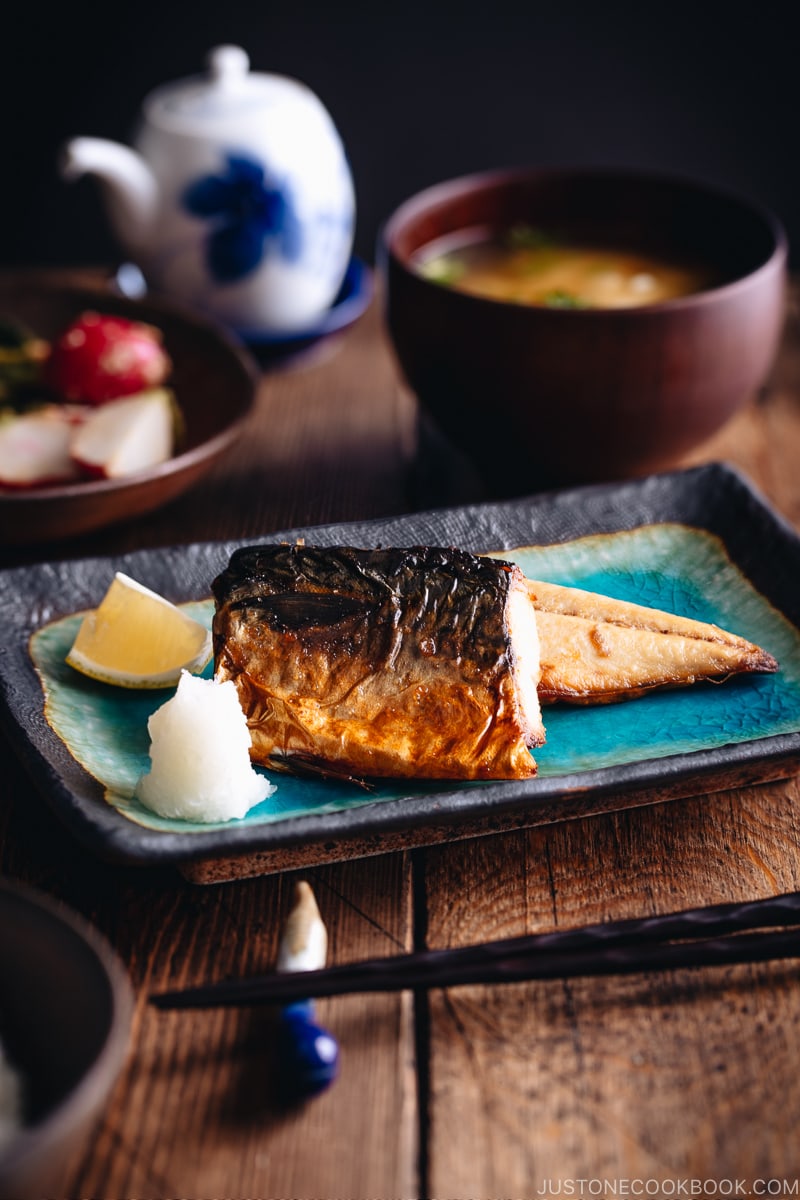
What to Serve with Grilled Mackerel
Thanks to its light yet flavorful texture, saba shioyaki pairs well with many dishes. Here are my suggestions:
Rice
Soup
2-3 Sides
- Kinpira gobo (stir-fried burdock root and carrot)
- Chikuzenni (Nishime) (simmered chicken and vegetables)
- Spinach gomaae (spinach with sesame sauce)
- Simmered kabocha squash
- Pickled cabbage
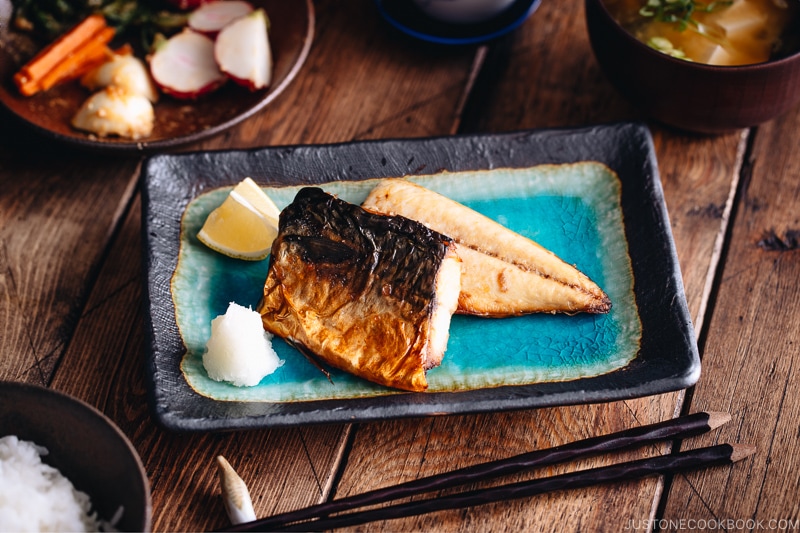
Japanese Ingredient Substitution: If you want to look for substitutes for Japanese condiments and ingredients, click here.
Recipe by Namiko Chen of Just One Cookbook. All images and content on this site are copyright protected. Please do not use my images without my permission. If you’d like to share this recipe on your site, please re-write the recipe in your own words and link to this post as the original source. Thank you.
Grilled Mackerel (Saba Shioyaki)
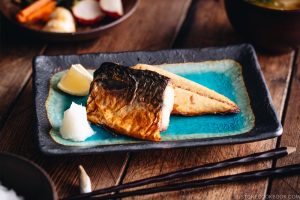
Baked in the oven, this Grilled Mackerel or Saba Shioyaki is the simplest fish recipe you can make on your busy weeknight. Serve with steamed rice, miso soup, and salad to go with this delicious fish!
- 10 oz mackerel (saba) ((280 g, 2 fillets))
- 2 Tbsp sake
- ½ tsp salt (kosher or sea salt; use half if using table salt)
- 1 inch daikon radish ((grated, to serve))
- 1 tsp soy sauce ((to serve))
- 1 wedge lemon
-
Gather all the ingredients.

- Coat the fish with 2 Tbsp sake.

- Pat dry with paper towel (and discard the sake) and transfer the fish to a baking sheet lined with parchment paper.

- Sprinkle ½ tsp salt on both sides of the fish.

- Let it sit at room temperature for 20 minutes. Preheat the oven to 400 ºF (200 ºC).
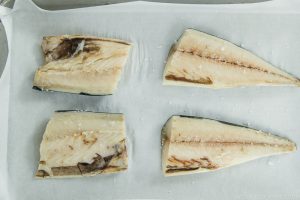
- After 20 minutes, pat dry the excess moisture came out from the fish.

- Place the fish skin side down and bake for 20 minutes, or until the flesh is golden brown.

- Grate daikon radish using (I love this grater). Serve the grilled mackerel with grated daikon and a lemon wedge on the side. Pour a few drops of soy sauce on grated daikon and eat the fish with grated daikon. Enjoy!

Japanese Ingredient Substitution: If you want to look for substitutes for Japanese condiments and ingredients, click here.
Recipe by Namiko Chen of Just One Cookbook. All images and content on this site are copyright protected. Please do not use my images without my permission. If you’d like to share this recipe on your site, please re-write the recipe in your own words and link to this post as the original source. Thank you.
Editor’s Note: The post was originally published in April 2013. The images and content have been updated in February 2019.